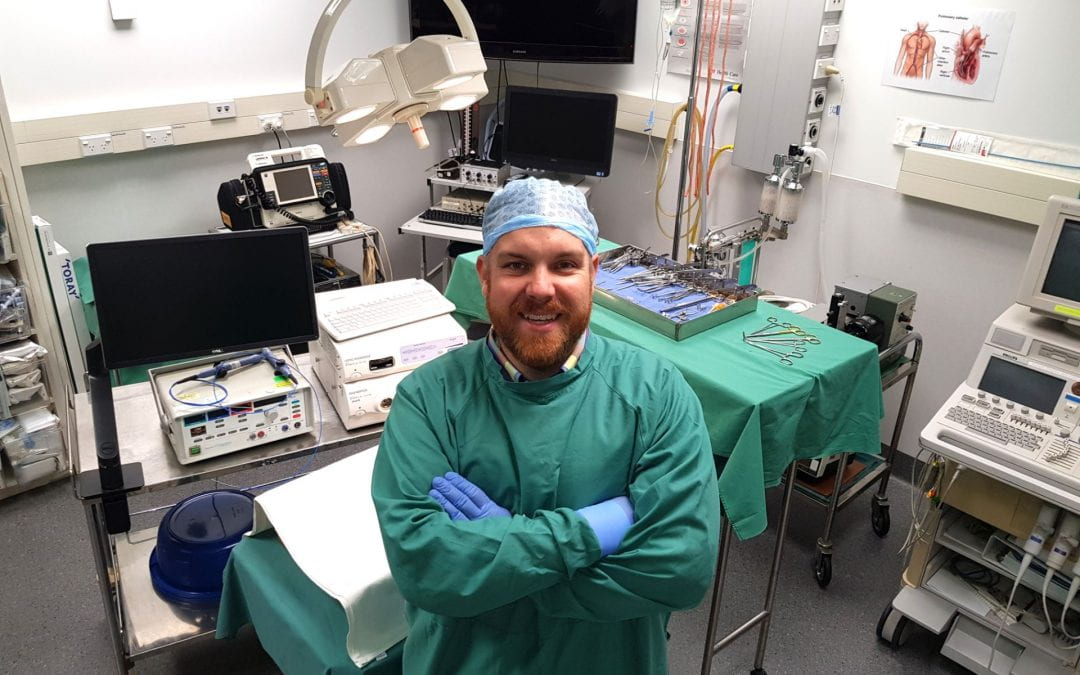A centre focused on surgical disease does not mean we are centre of clinicians alone. We are lucky to collaborate with a talented and diverse group of people. Tim Angeli is a Rutherford Discovery Fellow and Senior Research Fellow with the Gastrointestinal (GI) Research Group at the Auckland Bioengineering Institute (ABI).
- What do you do?
I am a biomedical engineer, specialising in the translational experimental space taking new ideas from engineering development through to clinical translation. My research focus is in experimental electrophysiology, with a specific focus on the gastrointestinal tract. I study the underlying electrical signals that help to control the stomach and intestines, and how those electrical signals change in health versus disease, with an over-arching aim of developing new diagnostic and treatment options for complex and challenging gastrointestinal disorders.
- Why did you choose this career path?
I have always been passionate about science, even as a young boy, and become enamoured with both medicine and engineering as I grew older, so I decided to combine those two passions in the form of biomedical engineering. I also believe that through the development of technical innovations, we can achieve improvements in medicine and healthcare that can reach beyond a single treatment theatre or hospital, to impact global advances in medicine. The ability of bioengineering to achieve such large-scale impact is what ultimately drew me into this field as a career, and has kept me here.
- What is the best thing about your research? (what are you currently working on that makes you excited?)
Undoubtedly the best part of my day is getting to work with a bunch of great people. I am very fortunate to work with some outstanding students, colleagues, collaborators, and mentors, as well as some incredible participants that take part in my research program. Getting to work with these people is what brings me the greatest joy, and also the motivation to keep pushing the envelope every day. He aha te mea nui o te ao? [What is the most important thing in the world?] He tangata, he tangata, he tangata. [The people, the people, the people.]
- How would you describe to a 10-year-old what you do in a sentence?
I study how your stomach mashes up food after you eat it, and moves that food through your body, to try to help people whose stomachs don’t work properly.


Recent Comments